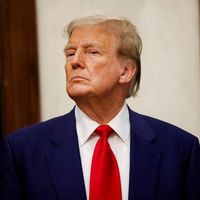Iranian Pundits Pessimistic About Quick Results In Nuclear Talks
Iranian political analyst Ali Bigdeli says Tehran's nuclear talks with the United States are likely to be prolonged even until after US elections in November.
Speaking to the conservative Nameh News website in Tehran, Bigdeli said there are two reasons why the negotiations remain inconclusive for a long time.
"One reason is that there are influential groups in Iran and the United States who are against an agreement," he said, adding that "The second reason is that the International Atomic Energy Agency (IAEA) is exerting pressure on Tehran over safeguard issues while according to Iranian nuclear chief Mohammad Eslami, Tehran is not prepared to show any further flexibility in this regard."
Bigdeli said that the JCPOA is unlikely to be revived without solving these two problems. "In the meantime," he added "Iranian and US negotiators are likely to send messages back and forth as there seems to be no determination, particularly in the West, to revive the 2015 nuclear deal."
He further reiterated that without direct talks between Iran and America, and without the IAEA's final verdict on the safeguards issue, it is unlikely that the two sides can reach an agreement.
Meanwhile, the spokesman for the Iranian government Ali Bahadori Jahromi told reporters in Tehran on Tuesday [September 6] that Iran has never left the negotiations and will never do that in the future. However, he added that "The other side should give up its excessive demands."
Bahadori further said Iran needs reassuring guarantees in the negotiations, the lifting of sanctions should be meaningful and sustainable and political claims about the safeguards should end.
In another development Iranian political analyst Habibollah Burbur told Nameh News on Tuesday that "No one should fall in love with a new agreement." He added that Iranians should learn to run their country based on what they have, and without any dependency on oil exports."
Burbur added, "We need to convert oil into products that could be sold without fearing the impact of sanctions." In his pessimistic analysis Burbur said: "Westerners can bloc transferring foreign currency to Iran at any given time." He further added that "Since the 1979 revolution, the Americans have always wanted to topple the Islamic Republic, but this is an uncalculated attempt as Iran is being supported by other countries."
Burbur did not name those countries, but Iran has frequently named Russia, China, North Korea and Venezuela as its allies while little is heard from those countries about a military alliance with Iran against the United States or any other country. During the 1980s war between Iran and Iraq, Russia openly supported Iraq against Iran.
Meanwhile, reformist political figure Alimohammad Haghshenas said in an interview with the Iranian Labor News Agency (ILNA) on Tuesday that "making an agreement with the United States is a complicated matter and those who make decisions on the matter should be accountable before the next generation of Iranians."
Haghshenas called on Iran's state-owned media including the state television and major news agencies to seek the views of individuals from across the country's political spectrum on the issue of a nuclear agreement with the United States.
He added that governments aligning with various political factions have worked on the nuclear negotiations for many years and all of the political factions should have a say about this matter. He also called on the government not to keep the parliament and political activists in the dark about their measures and decisions about the agreement.







